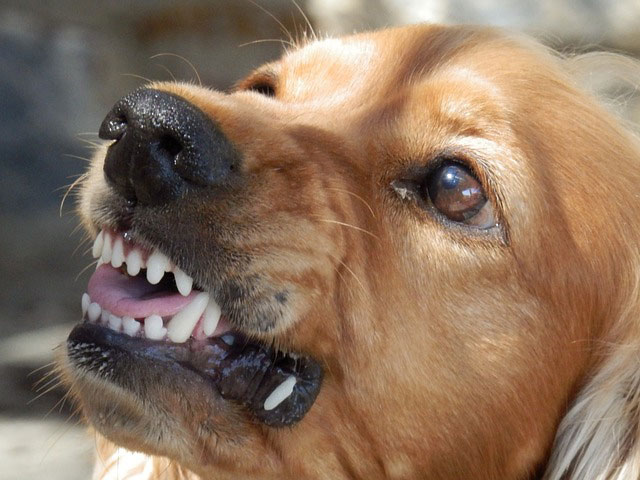Having a female dog in heat can be a challenging experience for any pet owner, particularly when the dog is displaying aggressive behavior. It is essential to understand that during their heat cycle, female dogs experience a surge in hormones that can cause them to act differently. As a result, it is crucial to understand why this aggression is happening and how you can handle it.
Firstly, it is important to know that aggression in female dogs during their heat cycle is not uncommon. This is because the hormonal changes in their body can affect their mood, making them more irritable, anxious, and easily agitated. Additionally, the scent that female dogs produce when they are in heat can attract male dogs, which can lead to aggressive behavior from both the female and male dogs.
It is important to keep your dog away from other dogs during her heat cycle, especially male dogs. Keep her indoors and limit her contact with other animals. This will help reduce her anxiety and keep her aggression under control. Ensure that your dog is always on a leash when you take her outside and keep a close eye on her. It may also be helpful to avoid walking her in areas where other dogs are frequently present.
Providing your dog with a comfortable and quiet space can also help reduce their aggression. Make sure she has a place to rest that is away from other pets, children, or any other stressors that may trigger her aggression. Keeping her in a cool and quiet room with a comfortable bed and plenty of water can also help to calm her down.
It is also essential to provide your dog with plenty of physical exercise and mental stimulation during her heat cycle. This can help reduce her anxiety and give her an outlet for her energy. Engage in activities such as fetch or take her for a walk. You can also try puzzle toys or interactive games that require her to use her mind.
It is important to remember that aggression in female dogs during their heat cycle is not permanent. Once her heat cycle is over, her hormone levels will return to normal, and her aggression should subside. However, it is crucial to take the necessary steps to keep your dog and others safe during this period.
If you are still struggling to control your dog’s aggressive behavior during her heat cycle, it may be time to consult with a veterinarian or a professional dog trainer. They can provide you with additional tips and techniques to help manage your dog’s aggression and ensure the safety of everyone around her.
Tips for Helping Your Aggressive Dog During Her Heat Cycle
- Keep your dog away from other dogs: Aggression is common in dogs when they are on heat. It’s best to keep your dog away from other dogs during this time, especially male dogs who can become aggressive and territorial.
- Provide a safe space: Create a safe space for your dog where she can rest and feel secure. This could be a crate, a designated room, or a quiet area in the house. Make sure this area is comfortable, and provide your dog with plenty of water, food, and toys to keep her entertained.
- Take your dog for walks at quiet times: Try to avoid busy times when you take your dog for a walk. This will reduce the risk of her getting agitated or aggressive towards other dogs or people.
- Consider using a calming aid: If your dog is experiencing a high level of aggression during her heat cycle, you may want to consider using a calming aid such as pheromone sprays, collars, or diffusers. These products release natural hormones that help to calm dogs down.
- Consult with a veterinarian: If your dog’s aggression is severe, it’s important to speak with a veterinarian. They may recommend behavioral therapy, medication, or other treatments to help your dog manage her aggression and stay calm during her heat cycle.
By following these tips, you can help your dog manage her aggression and stay comfortable during her heat cycle. Remember, this is a natural part of your dog’s life, and with patience and care, you can help her get through it safely and comfortably.
Having a female dog on heat can be a stressful experience, particularly when she is displaying aggressive behavior. It is important to understand that this behavior is caused by hormonal changes and that it can be managed through proper care and attention. Keep your dog indoors, provide her with a comfortable and quiet space, and ensure she gets plenty of physical exercise and mental stimulation. If you are still struggling to control her aggression, seek help from a professional. Remember that with patience and care, your dog’s aggression will subside, and she will return to her usual happy and loving self.




